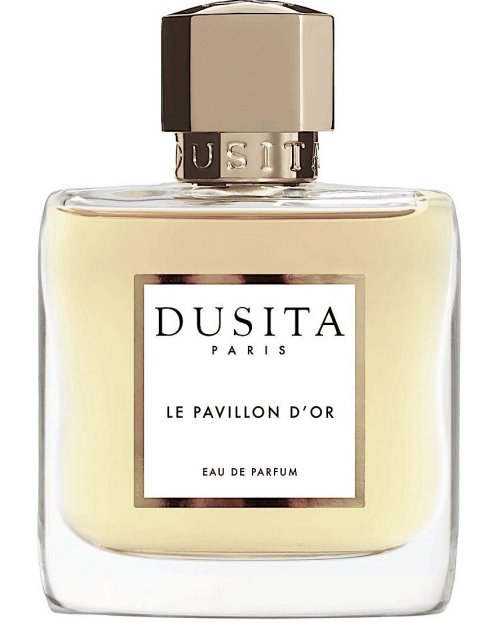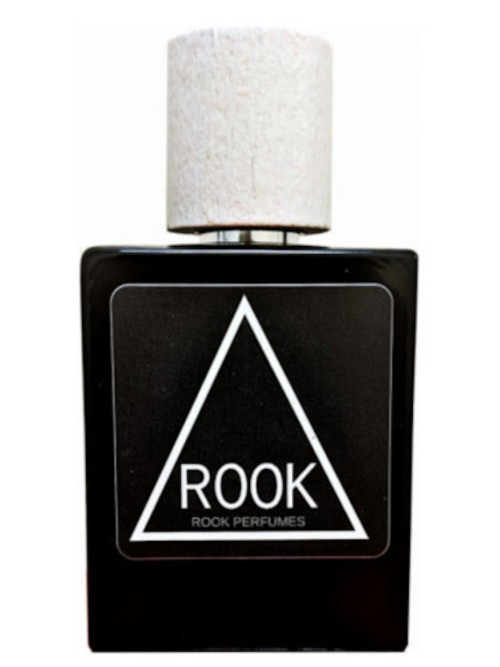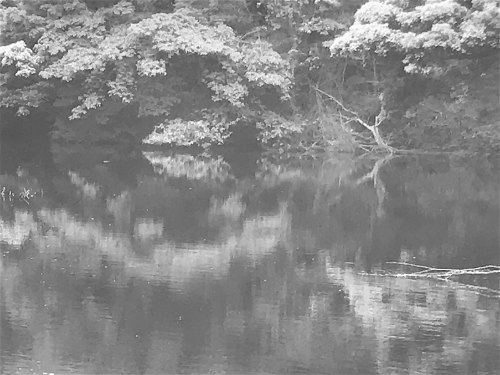






Neil Chapman :
I feel that some of the perfumes in your collection, like Issara or Melodie D’Amour, are quite ‘accessible’ in many ways. Oudh Infini, by contrast, is almost legendary in its ability to shock (I have come to love it, even if it I do definitely consider it to be somewhat ‘dangerous’. It is addictive, and quite compelling, but most definitely polarizing. I love introducing this perfume to dinner party guests when they come to the house and registering their reactions). Was this almost controversial effect actually intentional on your part? How did you come to make Oudh Infini ?
Pissara Umajivani:
When a person creates their own perfume, with intention or not, it expresses who they are. Like an artist with a painting, it will express intentionally or unintentionally what kind of spirit they have.
The blend of certain materials can stir up certain emotions and things that we wouldn’t imagine before. Oud has its own animalic sensuality – very raw, strong, by itself : for me, the energy in natural oud is as dynamic and powerful as an animal or a moving object.I wanted to capture that energy, the power of the material, but I also added orange blossom oil, vanilla absolute and civet, to play with and temper this dimension. I wanted the formulation to be dynamic, with a sense of action and a life of its own, like a living animal, but there is also a certain sensuality and delicacy to it, so I named it Oud Infini: the sense of the infinite……which matches in spirit a poem written by my father about the feeling of ‘glittering’ in the sky above you at sunset as the light changes in the sky. I named the perfume after I had finished formulating it.
Each perfume in my collection has its own differing and unique aspects. La Douceur De Siam, for example, is much more serene and quiet – it whispers softly. Oudh Infini is more confident. Very direct. More direct than the other perfumes. It represents a different aspect of humanity.


NC:
Some of your perfumes are quite challenging. You are not afraid to focus on aromatic materials that are not often prominent in perfumery, such as the ‘overdose’ of clary sage (salvia sclarea) – an essential oil I have used myself in the past, but have a very ambivalent relationship with personally (it can be a hypnotic and powerful mood changer in certain circumstances ), in your prize-winning Erawan: a green, herbaceous jungle/forest vetiver perfume that is very original. Clary sage takes centre stage in this fragrance, and I am not sure I have ever smelled this before in perfumery. The herb is traditionally used for clearing eyes : to ‘brighten the vision’, and though I very much like the idea of mental, or literal, clarity in perfume, the smell of that herb is too troubling for me to enjoy on my own skin.
PU
When I make any perfume, the challenge is about pushing myself. I think it is important to sometimes rebel against what society wants you to do, to not conform. To be true to your nature. It’s very important to discover oneself: perfumers often use the same set of ingredients, with the same mindset when creating new perfumes and for me, choosing an aromatic material to feature prominently in my perfumes from a totally different olfactive family pushes my boundaries further. For me, the clary sage note is a very soft and beautiful scent which had not been used so much in perfumery before; I like to sometimes have a kind of ‘underdog’ note – the perfume raw materials that have been neglected, like petitgrain, notes that are not common or popular and turn them into my own perfume. Each raw material has its own character and beauty.
When I make a new scent, I think about complexity, simplicity, the play between these two facets of a perfume as well as interpreting each perfume as a colour. Erawan is definitely a green : it reflects the scent of hay in autumn. For me, the colour of the essences play a big role when I choose the materials for one particular scent. Vetiver, oakmoss, they are all brown and green and I interpret them when blending them together as I would an oil painting; the balance, harmony of colours together – it’s like music. Sometimes this specific ingredient plays louder than the other, sometimes they play together, sometimes they become quiet, it depends on what the perfume wants to tell you and at what stage. I want the perfumes to speak. I want the scents to tell stories.
NC:
I definitely agree that your perfumes are very synaesthetically evocative of colours: pinks, corals, oranges, particularly in the ecstatic Melodie de L’Amour; I find Splendiris to be evocative of a soft mauve/lilac (there is a vitality here, where the current Dior and Chanel perfumes, for example, are not colour bound – are more abstract: fashion ‘image’ based; even vacuous or empty); I feel there is definitely a chromatic light inside your fragrances.
You are based in Paris. But can I ask what you feel might be specifically Thai about your perfumes?
PU:
Thai people are known for their hospitality. For smiling. And when people enter the boutique in Paris it is very important to me that they feel comfortable and welcome. We always provide tea or mineral water to clients and people usually stay a while and tell us about their lives while they are trying out different scents in the collection. I love meeting people. Perfume is not just a product for me. Beauty, art, is something that connects us.
Interpreting my father’s poetry, and turning it into perfume, is a form of meditation. It heals my spirit. It’s not just a business for me. It’s something I want to do endlessly. When I communciate with people from around the world, it seems that the shared love for smell really bonds people together; scent can reunite people in a very strange way; when we communicate with the beauty of the raw materials, the non verbal language that they possess is priceless. It’s important for me to pass this on, because in the world that we live in now, with all the wars and conflicts, I want to help people. My goal, really, is to create happiness in a bottle.
To answer your question further, some of the perfumes in my collection are based on specific experiences I have had in Thailand, for example in La Douceur De Siam, which was inspired by a poem about when the twilight hour comes, and even grief is washed away by the evening light, and the sunset; the sky turning to pink down by the Chao Phraya river in Bangkok, lost in the beautiful anonymity of life. I use Champaca flowers, frangipani, and combine them with Thai Chalood Bark – a sensual, woody, vanillic accord from ‘old Siam’ that does make the perfume specifically Thai in some respects; but even perfume ingredients that are sourced from or are exclusive to Thailand can be interpreted in their own way by the individual smelling them who is not personally aware of the Thai context. Their own culture, their own childhood, will inform their own understanding or appreciation of the perfume. Each person will interpret my perfumes in their own way.
My inspiration can come from many different places around the world, though. It could be from my travels in in Morocco or Algeria; Paris, Moscow.

NC:
Do you like incense? I have a long history of using Japanese incense in my house and am something of an aficionado.
PU:
When I was young, one of the first things I remember smelling was the incense that we always use in Thailand to pray to the Buddha; during the night every night, this kind of smell would pervade everywhere and the feeling of tranquillity that it gave….this aspect has a strong impact on my style.


NC:
I have written here on The Black Narcissus before about my love for the Thai director Apichatpong Weerasethukul, the Palme D’Or winner for Uncle Boonmee Who Can Recall His Past Lives, as well as the winner of other cinematic awards for such brilliant films as Tropical Malady and Centuries or a Syndrome.. Both D and I adore his work. The picture above, in fact shows me in hospital three years ago recovering after major leg surgery, when D brought in the projector one sunny afternoon, and we watched Apichatpong’s latest film in calm, contented silence: the exquisitely strange ‘Cemetery Of Splendour’. It was sublime.
There was a very significant, but beautiful moment where what was on the screen was also happening in the hospital room; a mis-en-abyme moment (me on the bed in the same coloured pyjamas that the Thai soldier was wearing) that felt timeless and liberating, as if membranes were being perforated between dreamtime and reality and I was really healing; could escape the confines of not only the hospital bed but also even my own body. His films slow the heart down; they put you in a trance-like state as they are so slow and silent – usually just the noises of jungle creatures or insects at night; the resonant voices of his characters as they cross the thresholds between life and death, the real world and the world of ghosts.
Are you familiar with his work?
PU:
Yes. The films of Apichatpong are completely unique. They have always been completely different to any other films in cinema. He always takes care of, and focuses on, the smallest details. He interprets images in his own ways, dreams, stories…. meditativeness, the Thai countryside, the forest, the myths of the animals: Thai legends that have been told by generations; the kind of story that had been lost in Thai modern society. We often don’t look at things in a Thai way any more ; many films in our society have become very ‘Hollywoodian’ and are often just all the same. I know that Apichatpong is sometimes seen as ‘pretentious’, but I don’t think that he is pretentious at all. He gives people freedom to think, allows them to have their own perception, which is another level of art because it doesn’t tell you exactly what. His films focus on the importance of every moment in life; not only the moment we wake up, but also the moment we see a light in the forest; the moment we dream; it’s really another world – his films reflect a part of the old Thai spirit in Thailand – the spirit of simplicity, the ordinary people.
My father and Apichatpong are similar, in some ways, in the sense that they are not appreciated by the majority of Thai people. Both are very focused on the art and honesty, what they want to communicate to people. They don’t tell people what to believe. They deal with dreams. And dreams are very important. It’s important to write about dreams. My father always told me we should have a notebook near us, to write about what happened in our mind – it’s important to record it, with a pen and paper. This allows the dreams to grow….


NC:
Pavillon D’Or, your most recent perfume, is a most unusual, green aromatic iris perfume that for me is odd, otherworldly, and yet it strikes me in some ways as being your most ‘personal’ work. The base accord is quiet, but smouldering; very emotive – a blend of English oakwood, sandalwood spicata and a touch of vanilla combining with the frankincense green sacra and a touch of boronia absolute to create a very tranquil, but also emotionally imploring quality like being alone in a forest at night, lost in the beating of your own heart.
Unconventional essences are used in the perfume, from white thyme and honeysuckle to two varieties of mint, posed against a backdrop of unexpected fig leaves and heliotrope – it is truly unlike anything I have ever really experienced before. I personally struggle with mint notes, and do confess that this perfume does confound me in some ways ( I am no mint man ), but I do think the evolution of the perfume, from its sylvan beginnings, to its introvertedly powerful conclusion ,works perfectly. It is very mysterious.
Pavillions. In the aforementioned film by Apichatpong, ‘Cemetery Of Splendour’, staff at the hospital in the middle of the Thai countryside attend to soldiers who have been overcome with an inexplicable sleeping sickness. Jenjira, a volunteer who watches over a soldier, Itt, also gets to know a young psychic woman, Keng, who uses her powers to help loved ones communicate with the comatose men: there may in fact be a connection between the soldiers’ enigmatic ‘syndrome ‘and the mythical ancient site that lies beneath the clinic ( a former battle field in the kingdom of Siam; soldiers from past lives usurping the energy of those sleeping above), as they explore ancient palaces and pavillions in another realm beyond reality…………..but still always there, like a palimpsest.
I have seen it said that Yukio Mishima’s famous novel from 1950, The Golden Pavillion – a treatise on beauty, art and madness – was one inspiration for your perfume, although in Elena Prokofeva’s reviews of three of your perfumes for Fragrantica, (“A Treatise On Beauty”) the writer says that
‘When creating the perfume, Pissara was inspired by impressionist paintings and the image of the golden temple located on the grounds of the Bang Pa-In palatial complex, built on water, as well as the temple’s reflections on water. The flowing, ever changing nature and the lack of permanence of the world around us is what Pissara wanted each flacon of Le Pavillon D’Or to contain. Amid this eternal whirlpool we find the shine within the human soul, constant in its principles and its striving for perfection.”.
Whatever the original inspiration, this perfume certainly has a quiet, and spiritual aspect to it that keeps drawing you to it. It is definitely grounding.
What kind of space were you in personally when you created it?
PU:
It was a time when I went to a completely secluded place: no internet or telephone signals……………a total quietness.
NC:
I do that sometimes – sometimes even for months. I don’t have my phone right now. I have lost it – it is at a police station somewhere.
Once, I didn’t even have a phone for a year and a half. Sometimes I just absolutely need the time for introspection, and to not be disturbed.
PU.
Yes. And I feel that we have a need to search for tranquillity more than ever now.
I think it has part of my soul there.









































































